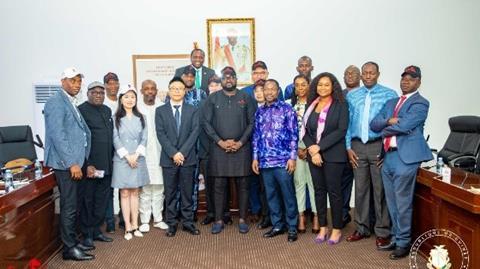
GUINEA: The government has signed agreements with Rio Tinto Simfer and Winning Consortium Simandou, members of the La Compagnie du TransGuinéen consortium, setting out the legal framework for ‘co-development of more than 600 km of new multi-use rail together with port facilities’ to be used for the export of iron ore from the Simandou mining area in the southeast of the country.
The agreements signed on August 10 represent another step forward in the project to exploit what Rio Tinto describes as ‘the last known, largest and richest untapped high-grade iron ore deposit in the world’.
The planned railway would run from a location near Port Morébaya to Forécariah, Kassa and Nialinko before reaching a terminus in the Simandou mining region.
Infrastructure capacity and the associated cost will be shared equally between Rio Tinto Simfer, which is developing Blocks 3 and 4 of the Simandou project, and Winning Consortium Simandou, which is developing Blocks 1 and 2.
China Baowu Steel Group had previously entered into a term sheet agreement that may see it partner in the WCS scope for Blocks 1 and 2 and the infrastructure joint venture.
Rio Tinto noted that the Co-Development Convention governing the project ‘requires ratification by the Guinean State. It is also subject to a number of conditions, including the Guinean State’s approval of the final feasibility study for the project.’
The company also said that ‘negotiations continue between the partners to finalise the investment agreements and related shareholders’ agreements which underpin the co-development’. In the meantime ‘critical path works continue to be progressed by the partners to ensure progress is maximised during the 2023-24 dry season’.
The Office of the Guinean Presidency said that signature of the agreements ‘established a comprehensive framework for the key infrastructure of the Simandou project, while underlining the unwavering commitment of all stakeholders in its realisation’. The agreements gave ‘paramount importance to the promotion of local content, the generation of business opportunities for Guinean companies, training as well as technology transfer during the construction phase.

















